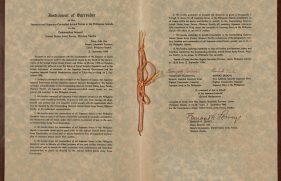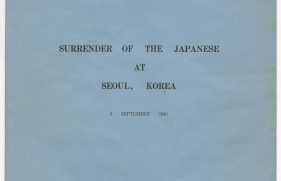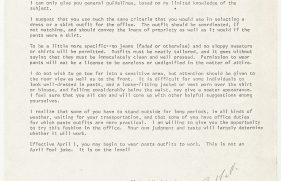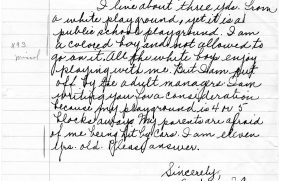This is an excerpt of the engrossing copy of H.R. 7152, the Civil Rights Act of 1964, showing the final text of the bill as passed by the House of Representatives. The provisions of this civil rights act forbade discrimination on the basis of sex as well as race in hiring, promoting, and firing.
This document shows several amendments to the bill, including one proposed by Representative Howard Smith of Virginia, that added word “sex” to the categories in which the bill prohibited discrimination. Critics argued that Smith, a conservative Southern opponent of Federal civil rights, did so to kill the entire bill. Smith, however, argued that he had amended the bill in keeping with his support of Alice Paul and the National Women’s Party with whom he had been working. Martha W. Griffiths (D-MI) led the effort to keep the word “sex” in the bill.
In the final legislation, Section 703 (a) made it unlawful for an employer to “fail or refuse to hire or to discharge any individual, or otherwise to discriminate against any individual with respect to his compensation, terms, conditions or privileges or employment, because of such individual’s race, color, religion, sex, or national origin.” The final bill also allowed sex to be a consideration when sex is a bona fide occupational qualification for the job. Title VII of the act created the Equal Employment Opportunity Commission (EEOC) to implement the law.




